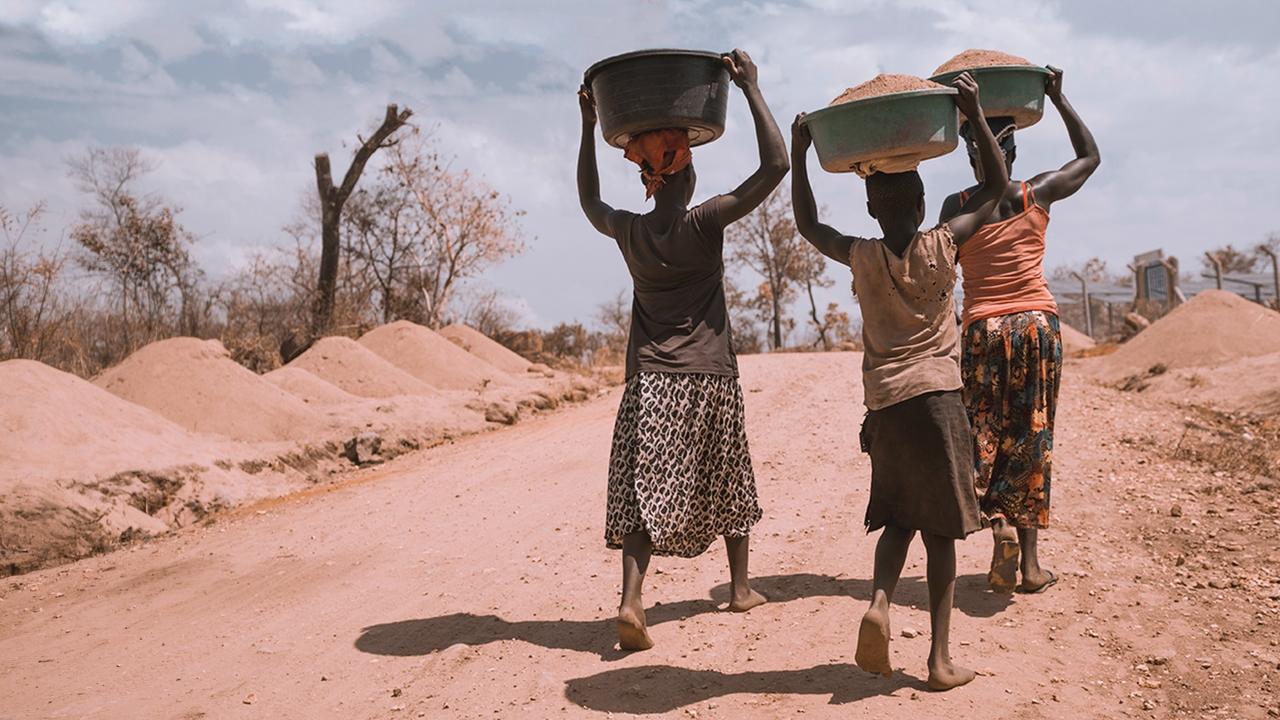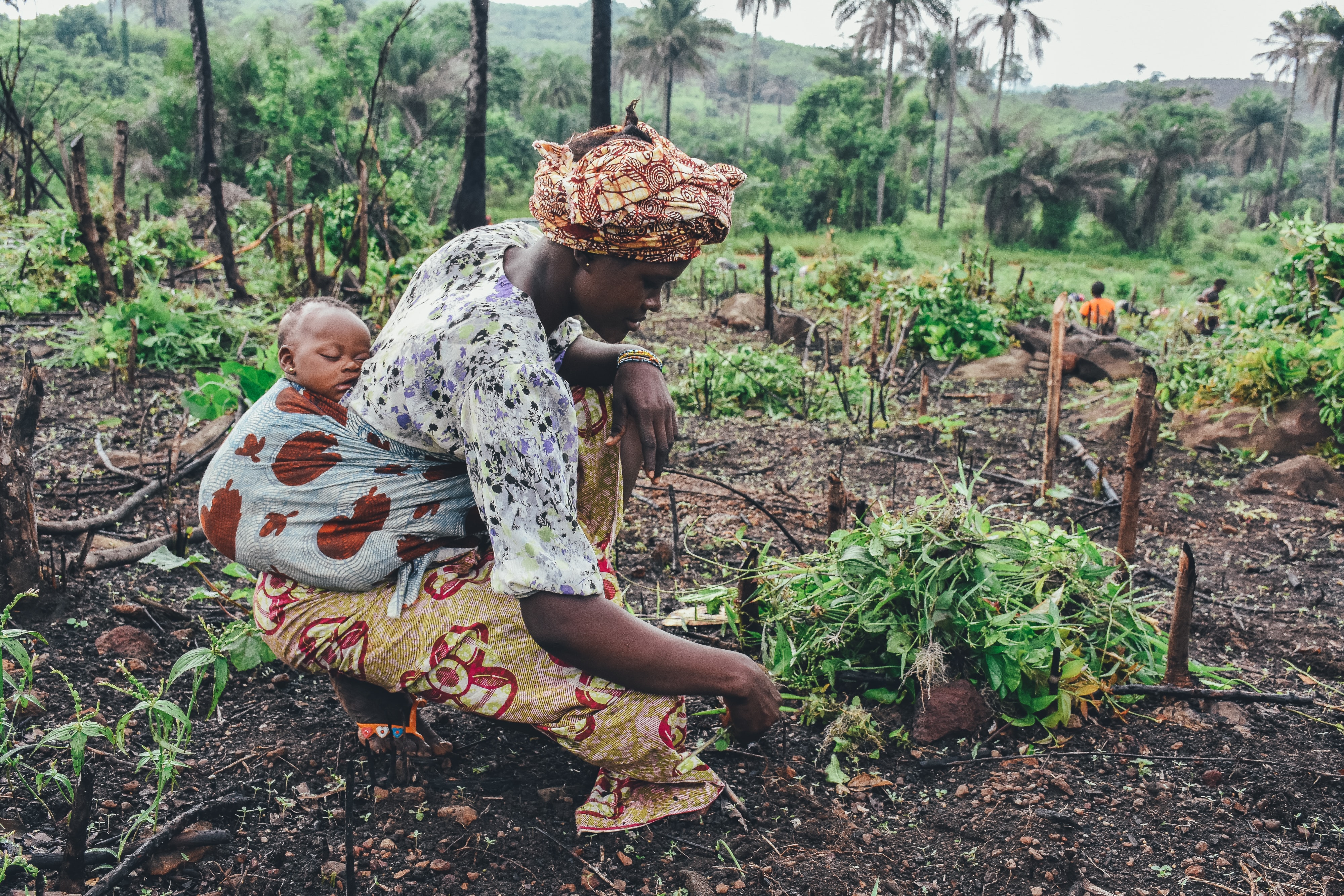Episode 050: Using Permaculture to Bring Ancient Grains to the Table with Yolele
Aug 18, 2020
Did you see that up top? Episode 050 everyone! Thanks to all of you who have been with us since the beginning, and if you're a recent joiner to the gang, welcome! We're excited today to talk with Pierre and Philip about their company called Yolele, where they have a mission to help smallholding farmers in Western Africa to sell the ancient grain they have relied on for centuries, fonio. Before we hop into the blog post, if you'd like to learn more about fonio...
You can order some from Whole Foods, and check our Yolele's website.
Supply, Demand and Bottlenecks
As Pierre and Philip shard their wonderful story in the episode, they talked a lot about supply and demand, the key to mastering in order to turn profit. They are seeking to help the struggling area of West Africa with the sales of fonio, and ancient grain from the area, by selling it in the United States. Luckily, as the duo relates, they haven't had much trouble convincing people of the benefits of the tasty grain, and the demand is no obstacle. There are also plenty of farmers and supply capacity, but the bottleneck comes in at the processing point of the supply, to turn the tiny fonio into an edible grain by removing its husk. They talked about the avenues they're exploring to overcome this hurdle and widen that bottleneck.
It reminds me of the book The Goal by Eliyahu Goldratt, where he talks about botlenecks in production lines, and the theories are applicable to any business. If you have a business or project you're trying to push forward, there will inevitably be bottlenecks that restrict increased production and forward motion. It is VITAL you identify these bottlenecks, and figure out how to overcome them, as Pierre and Philip are doing.

Consumer Behavior
Yolele's founder pair give lots of insight in the episode to the benefits of the grain they are selling, with obvious health and time-saving benefits. People genuinely like fonio once they try it. But with them selling at Whole Foods, they are really only being exposed to a niche, specialty food market. At what point could fonio hit the tipping point and be brought in front of a wider audience? It is that same with any other regenerative product, consumer behavior must change. Lately I've noticed an increased awareness of regenerative food practices, but also a lot of marketing jargon mixed in to make consumers believe what they are eating is healthy, sustainably sourced, or "environmentally responsible." Consumers have a hard time believing "all natural" doesn't mean what they think it does, and actually has no backing.
And yet we need to start educating consumers on more environmentally responsible food choices, because they are voting for their food system every time they go to the grocery store. We need whistle blowers, consumer education, and realistic alternatives to draw them towards. As the wife and mom of a family of 6, regenerative options aren't always economically feasible unless we can grow it ourselves. But the more we can change the the larger group's mind, the more we can change the market.

A Diversified Alternative to Mono-Cropping
One thing I loved about this episode was when Pierre and Philip brought up the fact that they are trying to regeneratively farm fonio using permaculture practices, and implementing things like companion planting and crop rotation into their practices. One thing we need to be really aware of is if we are supporting monoculture operations, or polyculture operations like Yolele. If we were truly going to be supporting polyculture, and if we weren't able to be growing our own, we would need to find the sources of regenerative polyculture operations, and then buy not only their main crop, but the other parts of the system.
If there was a farm using the Three Sisters plant guild method, we could support them best by buying the pumpkins, as well as the squash and beans, and so on. Let's not take the easy road and vote with our money for government subsidized monoculture beasts.

The Speed Bump for Regenerative Foods in Large Families
As I mentioned before, I'm a wife and mom of a family of six, and unlike some families, my kids EAT SO MUCH. To be perfectly honest, it's a constant struggle to put healthy, environmentally responsible food on our table every meal while not driving myself crazy by spending all day in the kitchen, or spending all of our income on food. We have a budget for food, and I do what I can to make it stretch without succumbing to corn dogs and freezer pizzas. I work really dang hard at it.
While at this point in time fonio would be out of our grain budget, we would go through an entire package at one sitting with maybe a little left over, I work really heard to get "superfoods" into my family. Buying in bulk is a great help, though I prefer more of the bulk bins to Costco. We buy as organic as we can within our budget, and grow what we can within the space we have to garden during the growing season. I can and preserve where possible, and have slowly been working towards more homemade things. We've gotten to the point where we make our own relish, most of our own pickles, and our own bread and jams, and anything else I can manage while wrangling and homeschooling 4 young kids. High ticket specialty items aren't really in the picture for us at this time, but hopefully as the market changes to include more of these regenerative food sources, they will become more of a realistic option for those of us with big families.
We hope you enjoyed this week's episode, and find ways to support regenerative businesses in your area of influence to keep the good work moving forward.
Keep Growing!
Previous Episode: An Invitation to Permaculture For and By the Youth with Lulu
